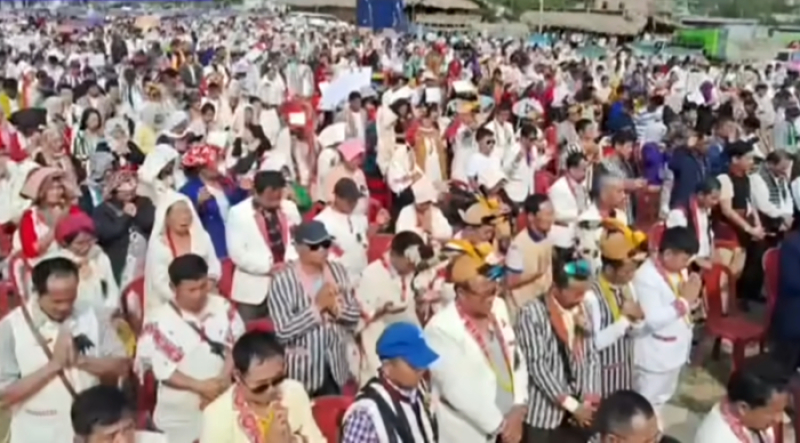
The Uttarakhand Cabinet approved the Freedom of Religion (Amendment) Bill 2025 last Wednesday, enacting some of the toughest penalties in India for “forced religious conversion,” including sentences ranging from three years to life imprisonment.
Chief Minister Pushkar Singh Dhami presided over the August 13 cabinet meeting that approved the legislation, which will be presented in the upcoming three-day monsoon session of the state assembly that started Tuesday. The ruling BJP maintains a comfortable majority in the assembly.
The original Freedom of Religion Act was introduced in Uttarakhand in 2018 and was first amended in 2022. The latest amendment significantly raises the penalties from the previous maximum of 10 years imprisonment and a $575 fine. Under the new rules, general cases of forced conversion will now carry a sentence of three to 10 years with a $575 fine.
For cases involving minors, women, scheduled castes, scheduled tribes, disabled individuals, or those with mental challenges, the punishment will be five to 14 years of imprisonment and a minimum of $11,500. Mass conversions are punishable by seven to 14 years in jail, and conversions involving foreign or external funding will also result in a sentence of seven to 14 years along with at least $11,500 in fines.
The strictest punishment of 20 years to life imprisonment, along with a minimum fine of $11,500, applies to conversions carried out through force, threats, inducements, trafficking, or promises of marriage. People concealing their religion for marriage purposes could face three to 10 years in prison and a nearly $3,500 fine.
The bill broadens the definition of “allurement” to include “any gift, gratification, easy money or material benefit, whether in cash or kind, employment, or by invoking divine displeasure.” Officials mentioned that promises of a better life and free education in religious institutions would also be considered forms of allurement.
Furthermore, “portraying the practices, rituals and ceremonies of any religion or any integral part thereof in a prejudicial manner in relation to any other religion; or glorifying one religion as against another will also be considered allurement,” an official stated.
The legislation also introduces stricter enforcement measures. All offenses are now cognizable and non-bailable, and can only be tried in sessions courts. Police are authorized to arrest suspects without warrants, and bail will only be granted if courts are convinced of the accused’s innocence and the likelihood of reoffending.
District magistrates will have extensive powers to seize properties “obtained from a crime related to religious conversion” even before court cognizance. They can appoint administrators to manage seized properties with police assistance if necessary.
The bill provides free legal aid, accommodation, maintenance, medical facilities, and other support for victims of forced conversions, with their identities kept confidential. A special government scheme ensures immediate assistance for those affected.



















